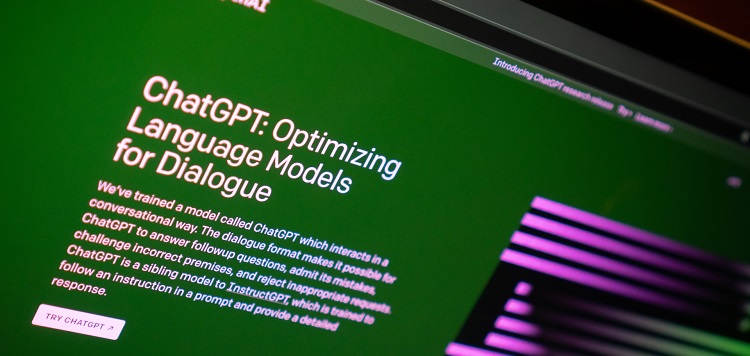In the current digital age, the utilization of Artificial Intelligence (AI) technology is becoming increasingly widespread. One such AI technology, known as ChatGPT, has recently taken the world by storm. Developed by OpenAI, ChatGPT is an automated text generator designed to create natural language conversations. This technology has quickly become one of the most widely used consumer apps and its popularity has sparked a debate about its implications and usage.
ChatGPT is a powerful tool that can be used for a variety of purposes, from generating marketing copy to creating automated customer service conversations. While some view it as an invaluable asset for businesses and consumers alike, others have raised concerns about its potential to undermine the quality of academic assignments and the ethical implications of using it.
The issue is particularly significant for students, as there are concerns that using ChatGPT to generate essays and other assignments could undermine the quality of education. Robert Mann, the supervisor of discipline and appeals at Dalhousie University expressed: “Our primary focus is that students are fairly and genuinely assessed on effective assignments intended to maximize learning. The suitability of text generators or any other software provided to students will always be considered with this in mind." This statement highlights the importance of considering the implications of using ChatGPT for academic purposes before making any decisions about its usage.
Furthermore, there are also concerns that using ChatGPT could lead to students not engaging in original thought or truly learning about the topics they are studying in depth. Specifically, some have argued that using ChatGPT could lead to students relying too heavily on automated tools or AI-driven technologies instead of engaging in deep thought or critical analysis when writing essays or other assignments.
As mentioned above, ChatGPT has quickly become one of the most popular consumer apps in the world. It has gained significant traction due to its ability to automate customer service conversations and generate marketing copy quickly and efficiently. As a result, many businesses have adopted ChatGPT in order to save time and money on customer service and marketing costs.
Despite its popularity among businesses and consumers alike, there have been a number of criticisms raised about the technology. These criticisms primarily focus on the ethical implications of using ChatGPT for academic purposes and its potential to undermine the quality of education.
In response to these concerns, several schools have begun disallowing the use of ChatGPT for academic purposes. In particular, U.S. public schools have banned the use of ChatGPT in order to prevent students from taking shortcuts when writing essays and other assignments.
In addition to schools disallowing the technology, several employers have also put limits on the utilization of ChatGPT in order to prevent employees from using it as a shortcut when writing reports or other documents. Companies such as Amazon, Verizon, Citigroup, Goldman Sachs, Wells Fargo and Accenture have all limited their employees’ use of text generators or other AI-driven technologies such as ChatGPT in order to ensure that employees are producing original content that meets their standards for quality and accuracy.
Ultimately, it is important for all stakeholders involved—from schools and employers to businesses and consumers—to consider the implications of using technologies such as ChatGPT before making any decisions about their usage in order to ensure that educational standards are upheld while still taking advantage of its potential benefits. This includes assessing whether or not using automated tools like text generators will lead students away from engaging in deep thought or critical analysis when writing essays or other assignments and considering whether this may result in a decrease in educational standards overall due lack of engagement with course material or lack of creativity demonstrated by students in their work if used indiscriminately or without proper regulation or oversight.

